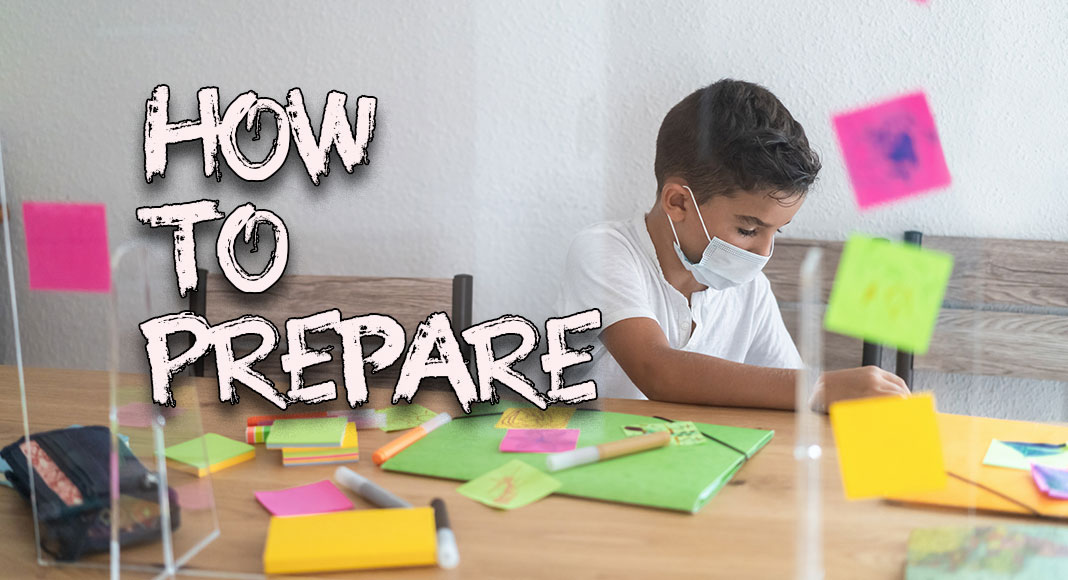
Mega Doctor News
Newswise — Are you a parent worried about your children going back to school in person after a year and a half of mostly virtual learning?
Education experts have a word of advice — chill.
That’s the consensus from three faculty members at the University of Wisconsin-Milwaukee’s School of Education, who also offer a few tips to make the transition easier.
DeAnn Huinker is a professor of mathematics education and director of the Center for Mathematics and Science Education Research; Tania Mertzman Habeck is an associate professor of teaching and learning who teaches courses in literacy and reading and does research on children who struggle with reading; Jennifer Brownson is senior lecturer in teaching and learning who focuses on social studies and does research on culturally relevant teaching methods that address both the academic and social/emotional needs of students.
Here are their thoughts on moving ahead from a challenging educational year.
Mathematics
- Don’t worry that students will have to start over on mathematics. Many schools are planning to take a “scaffolding” approach, Huinker said – moving ahead on grade level mathematics, but inserting lessons on whatever students might not have learned well enough.
Show children that you have a positive attitude toward math – don’t use phrases like “I was never good at that.”
- Over the summer and at home, take advantage of relaxed activities to show children how math is used in everyday life. Have them help you double quantities in a recipe, for example.
- Remind students that most people don’t do mathematics perfectly every time. Trial and error is part of the learning process.
- Realize that math is something we all have to work on; it takes work. Huinker likes a “Sesame Street” episode that focuses on the word “yet.” A child may not know how to attack a math problem, “yet,” but they can figure it out eventually. “You aren’t just magically a math person. It’s something you have to work on.”
- A few resources Huinker suggests for families are Bedtime Math and Mini Math, free apps that offer fun activities based on real world math, such as dividing a pizza. “Rough Draft Math” is a book that shares the idea that mathematics, like writing, is a process.
Reading and literacy
- Summer is a good time for parents to encourage reading and literacy in a relaxed atmosphere and letting their child follow their interests, Habeck said. “During the school year, reading can be very intense. In summer, don’t worry about the quality, look at the quantity.”
Look at reading and literacy experiences beyond traditional stories, and let children follow their interests. “My boys are big fans of Minecraft, and they read fan fiction about it in their spare time, Habeck said. “It’s not something a teacher would use, but boy do they love them.”
- Similarly, youngers learn and grow in confidence by reading “how-to” instructions – whether it’s reading a recipe or mastering a new skill in a video game.
- Reading to children or having them read to you also helps with literacy, Habeck said. With today’s busy lives, that may be a challenge. Habeck notes a clever way one family approaches this: The family chooses a book to read and gathers in the kitchen while making dinner. Parents and children take turns reading.
General back-to-school
- Relax and trust the teachers and the schools. “Every single school district and every single school is thinking about what is going to be the best approach for these students, knowing that the last year and a half was not ideal,” Huinker said.
Remember that children have been learning virtually, so they’re not starting all over.
- Use the pandemic as an opportunity for teaching children about science, history and social sciences, Brownson said. “Inquiry is important in these subjects,” she said. So, talk to your children about the science behind viruses and vaccines and the impact the pandemic has had on not only the U.S., but the world. “Encourage them to ask questions.”
- Help children who’ve been away from in-person learning or unused to working in larger groups prepare for going back into the classroom by discussing, or even role playing, what the experience may be like, Brownson said. Some may jump right in, but others may be more hesitant about the sudden togetherness.
- Discuss how school may be different this year because of social distancing and perhaps masking. “They will need to get used to the physicalness of being in the building… They need to know what it feels like emotionally,” Brownson said.
Above all, the three experts agree, communicate and collaborate with teachers and the schools. Find the best ways to communicate with schools and teachers – whether that’s email or an online forum set up during virtual learning, Brownson said. With pandemic protocols still in place, it may not always be possible to just pop into the school for a chat.
“Once the school year begins, be open and supportive,” said Huinker. “Ask what more can I do to get my child ready, and be ready to offer help and support.








